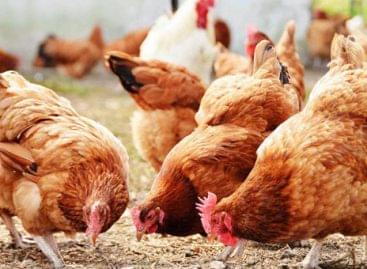Results and experiences of the first year of the Agro-ecological Program
Following the 2023 applications of the new green area-based subsidy, the Agro-ecological Program (AÖP), nearly 51,000 producers received a total of HUF 92.5 billion in payments for approximately 3.6 million hectares.

(Photo: Pixabay)
The new subsidy title introduced in 2023 within the framework of the KAP Strategic Plan, which can be chosen voluntarily by farmers, is intended to encourage the spread of agronomic and farming practices in all land use categories that have a positive effect on the condition of the soil, its water retention and biodiversity, and the living conditions of pollinators. After the checks completed by the Hungarian Treasury during the spring, thanks to partial payments in the amount of more than HUF 73 billion, 53,000 farmers received part of the requested support. This week, the Hungarian Treasury (Treasury) arranged for an additional payment of HUF 18.7 billion, which increased the amount of AÖP payments to HUF 92.5 billion. The specific amount of the AÖP subsidy paid on the basis of the 2023 applications is 71.18 euros per hectare, which, calculated at the exchange rate at the end of September 2023, which is also applicable for other direct subsidies, means a payment of HUF 27,724.6 per hectare to the producers. As with all other support entitlements, in the case of the first student year of the AÖP, decisions were made rejecting or partly rejecting, against which the farmers have the opportunity to appeal. In this, the staff of the village farmer of the National Chamber of Agrarian Economy provide all the necessary assistance to those involved.
What are the most important lessons of the first year?
The first is that the following practices most often caused difficulties for producers: mulching the field, tillage without rotation, the use of microbiological preparations or conditioners in the field, bee-friendly crop protection, mowing extensive lawns at least once, preserving lawn areas, and mulching perennial plantations with vegetation or lawn. In most cases, unfortunately, the producer was not able to fulfill the originally undertaken practice, and the Treasury was convinced of this as part of an inspection. The second is that there are also cases when an unfavorable decision was made due to the producer’s administrative failure, such as late or inaccurate agrotechnical notification. In view of the above, this year it is advisable for the farmer to pay extra attention to the necessary notifications and data recording, since for many exercises this is the only objective control and verification tool for the authorities to assess whether the chosen exercise has been completed. In addition, the Ministry of Agriculture adjusted the options for fulfilling the administrative obligations of the AÖP, refined the legal consequences attached to them, and the optional practices themselves were expanded compared to 2023 in the case of lawns and plantations, based on the implementation experience so far.
AM
Related news
Related news
Coca-Cola To Discontinue Frozen Products In US And Canada
🎧 Hallgasd a cikket: Lejátszás Szünet Folytatás Leállítás Nyelv: Auto…
Read more >Amazon expanding same-day prescription delivery to 4,500 cities & towns
🎧 Hallgasd a cikket: Lejátszás Szünet Folytatás Leállítás Nyelv: Auto…
Read more >









